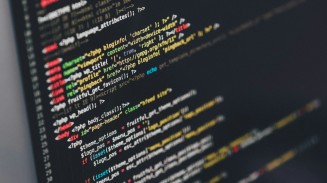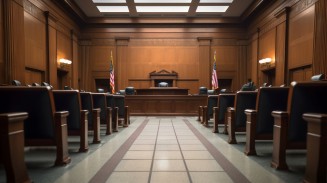Understanding an archaic and dizzying legal system isn't easy, but it's a crucial part of what makes modern society function. Countless young professionals thus yearn to go to law school, where they hope to become well-versed in legalese and attain high-paying positions for themselves at lofty law firms in the future. Nonetheless, getting into law school remains one of the most challenging endeavors one can embark upon, and countless law students receive rejections every year.
Why is it so difficult to get into law school, anyway? Here's a breakdown of why the nation's top legal institutions have such a high barrier to entry, and how successful applicants are gaming the rules.
Many people are vying for law school positions
Perhaps the most important reason that getting into law school is so difficult is that so many people are trying to do it at once. Every year, countless Americans and foreign nationals alike attempt to gain entry into the nation's premier law schools, largely because such institutions have well-established records of success when it comes to securing high-paying positions for their graduates. Similarly, some of the most important legal bodies in the world are composed almost entirely of graduates from elite law schools; the U.S. Supreme Court is deeply biased towards graduates from Harvard and Yale law school, for instance.
It should come as little surprise that there's a high demand for legal positions, especially given that lawyers enjoy not only hefty paychecks but also the respect of society. Many politicians and presidents have their roots in law schools across the country, which leads many aspiring politicos to try their hand at applying for some of these institutions themselves in hopes of gaining a leg up at the ballot box. An extensive amount of media coverage surrounding modern legal scandals likely generates an interest in law school, too; in President Trump's first year in office, law school applications soared in the face of extensive media coverage of the courts.
A high number of applicants isn't the only reason that most law schools are so difficult to get into, either. In many elite institutions, a high number of barriers to entry have been established over the past few decades that enable a certain class of students to succeed at the expense of others. The discrimination and bias that minorities undergo at major legal institutions is well-documented, with law schools everywhere having failed minority students for countless generations. This burden is made worse because these students come from poor socio-economic backgrounds and will be forced to look for cheap student housing. Finding affordable house insurance in Ontario, and other places, adds additional pressure and financial strain. Even after they have sorted their housing situation, LSAT discriminiation and having to deal with the biases of individual professors continues to taint the ability of certain students to achieve in law schools should they be accepted.
The law demands a high barrier of entry
Women also face high barriers of entry into the legal profession, with courts having been historically dominated by men. Most universities are similarly dominated by men, too, meaning that aspiring female students who are thinking about law school have few examples to draw upon when considering how their careers might fare. Recent studies have also driven home the age-old wisdom that female lawyers face widespread gender bias in the workplace, too, illustrating how much structural change is needed in the legal realm.
The law demands a high barrier of entry regardless of your background, too, with even the most talented of students finding it exceptionally challenging to survive law school in one piece. Between working long hours and dealing with difficult clients, many lawyers find themselves overworked and overstressed. Nonetheless, the job market for graduates of the nation's top law schools remains vibrant even in the worst of economic recessions, largely because corporations and wealthy individuals will always need access to legal expertise regardless of market conditions. Thus, the legal industry will always be crowded by those seeking a well-paying job in trying times.
Many barriers exist to prevent otherwise talented individuals from becoming lawyers. Between women facing gender bias and minorities dealing with structural barriers to acceptance, it's hard to see how the legal profession is accessible to everyone. With the high costs of law school often driving poorer students away, too, it appears that the legal industry will keep favoring elites for years to come. With concerted efforts, however, and with widespread public awareness campaigns, law schools and the legal environment can become more equitable and accessible to all.
© 2023 Lawyer Herald All rights reserved. Do not reproduce without permission.
* This is a contributed article and this content does not necessarily represent the views of lawyerherald.com
Get the Most Popular Lawyerherald Stories in a Weekly Newsletter





